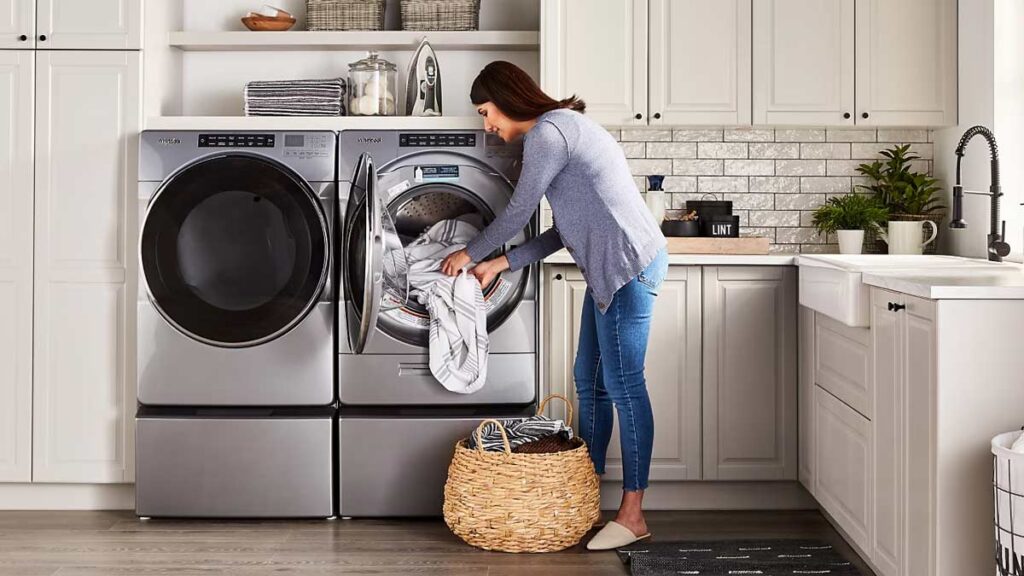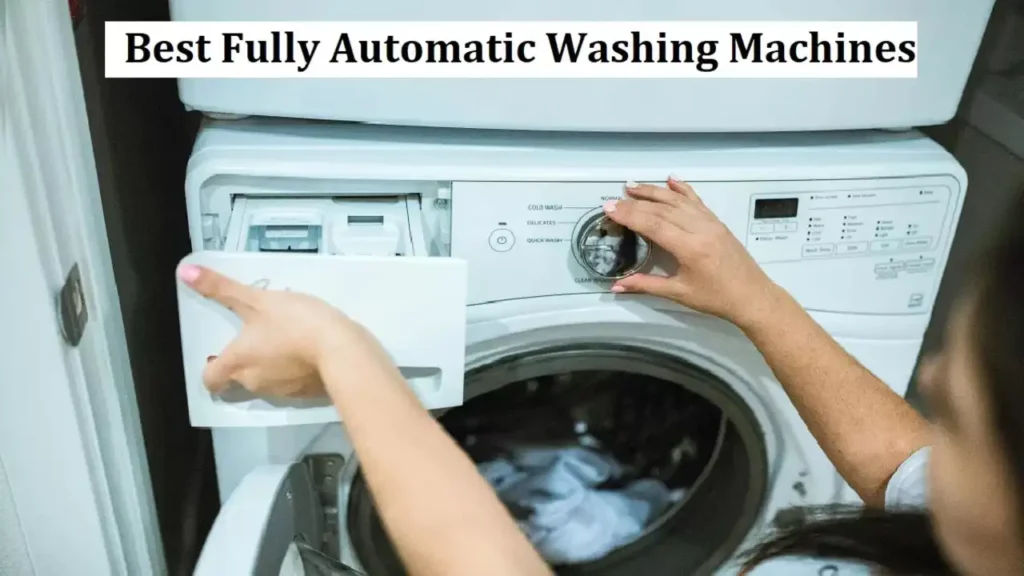Introduction
A washing machine is a household appliance designed to automate the process of cleaning clothes and textiles. It uses water, detergent, and mechanical agitation to remove dirt and stains from fabrics. Washing machines have evolved significantly, offering various features and settings to suit different fabrics, levels of dirt, and washing requirements.
Types
1. Based on Loading Mechanism
- Top-Loading
- Description: Clothes are loaded from the top.
- Features:
- Easier to load and unload without bending.
- Typically faster wash cycles.
- May use more water compared to front-loading machines.
- Subtypes:
- Impeller/Pulsator: Uses a spinning disc at the base for agitation.
- Agitator: Uses a central post with fins that moves clothes around.
2. Based on Automation
- Semi-Automatic
- Description: Requires manual intervention for some tasks (e.g., moving clothes between wash and spin tubs).
- Features:
- Typically has two tubs: one for washing and another for spinning.
- More affordable and uses less electricity.
- Requires manual water filling.
- Fully Automatic
- Description: Performs all tasks (washing, rinsing, spinning) automatically.
- Features:
- Single-tub design for convenience.
- Available in both top-loading and front-loading models.
- Requires a continuous water supply.
3. Based on Special Features
Compact/Portable
- Description: Smaller, lightweight models designed for portability.
- Features:
- Ideal for small spaces and individuals.
- Some are manual or require minimal automation.
- Washer-Dryer Combo
- Description: Combines washing and drying in one machine.
- Features:
- Saves space.
- Convenient for people with limited room for a separate dryer.
- High-Efficiency (HE) Machines
- Description: Designed to use less water and energy.
- Features:
- Uses advanced washing technologies.
- Requires specific HE detergents.
- Smart Washing Machines
- Description: Equipped with Wi-Fi or Bluetooth for remote operation.
- Features:
- Controlled via smartphone apps.
- Provides notifications, cycle customization, and maintenance alerts.
4. Industrial Washing Machines
- Description: Heavy-duty machines for commercial use in laundries, hotels, and hospitals.
- Features:
- Large capacity.
- Designed for frequent and bulk washing.
- Robust build for extended durability.

Factors to consider
1. Type of Washing Machine
- Top-Loading vs. Front-Loading:
- Top-loading is more convenient for loading, while front-loading offers better cleaning efficiency and fabric care.
- Semi-Automatic vs. Fully Automatic:
- Semi-automatic machines are cheaper and require manual effort, while fully automatic ones are more convenient but costlier.
2. Capacity
- Small Capacity (5–6 kg): Ideal for singles or couples.
- Medium Capacity (6.5–8 kg): Suitable for small families.
- Large Capacity (8.5 kg and above): Best for large families or bulk washing.
3. Energy and Water Efficiency
- Energy Star Rating: Look for higher-rated models to save on electricity bills.
- Water Usage: Front-loaders are more water-efficient than top-loaders.
4. Features and Settings
- Wash Programs: Options for delicate fabrics, quick wash, heavy-duty cleaning, etc.
- Temperature Control: Allows washing with hot water for better stain removal and hygiene.
- Spin Speed: Higher spin speeds result in faster drying but may be harsher on clothes.
- Child Lock: Prevents accidental changes during operation.
- Smart Features: Connectivity with apps for remote control and cycle customization.
5. Budget
- Entry-Level: Semi-automatic or basic top-load machines.
- Mid-Range: Fully automatic top-load or basic front-load models with essential features.
- Premium: High-capacity, front-load, or smart washing machines with advanced settings.
6. Space and Installation
- Size: Ensure the machine fits in the designated space.
- Type of Load: Front-loaders may require more bending but save vertical space.
- Installation Requirements: Check for water inlet/outlet and electrical outlet compatibility.
7. Noise and Vibration
- Opt for models with noise-reduction features if the machine will operate near living spaces.
8. Build Quality and Durability
- Drum Material: Stainless steel drums are more durable and efficient than plastic or porcelain-coated ones.
- Warranty: Look for models with extended warranties for peace of mind.
9. Maintenance and After-Sales Service
- Check the availability of service centers and ease of maintenance.
- Consider brands with good customer support.
10. Environmental Impact
- Machines with eco-modes or low-energy consumption help reduce your carbon footprint.
- By balancing these factors with your specific requirements, you can select a washing machine that offers the best value and performance for your household.

Models
Indian Brands
- IFB – Known for front-load and top-load washing machines with advanced features.
- Godrej – Offers budget-friendly options and energy-efficient machines.
- Videocon – Provides economical washing machines (though its market presence has reduced in recent years).
- LG – Offers a wide range of innovative and durable washing machines with features like AI, steam wash, and inverter technology.
- Samsung – Known for stylish designs, advanced technology like EcoBubble, and energy efficiency.
- Bosch – Popular for its reliable front-load washing machines with German engineering.
- Whirlpool – Focuses on high-performance top-load and front-load machines with user-friendly features.
- Haier – Offers affordable washing machines with modern features.
- Panasonic – Known for durable and user-friendly washing machines with Japanese technology.
- Siemens – Offers high-end washing machines with cutting-edge features and premium quality.

Conclusion
In conclusion, India’s washing machine market is diverse, with a mix of domestic and international brands catering to a wide range of consumer needs. Brands like LG, Samsung, Bosch, and Whirlpool dominate the premium and mid-range segments with innovative features, while Indian brands like IFB and Godrej focus on affordability and reliability. Budget-friendly options from brands like Haier, BPL, and Onida also make washing machines accessible to all income groups. Whether you prioritize advanced technology, energy efficiency, or cost-effectiveness, the Indian market offers something for everyone.
